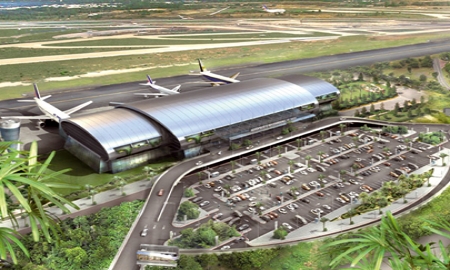Prioritizing an interdisciplinary approach to the challenges of development, which takes into account their local, national and regional impact, EG Projects devises strategies for sectoral development and launches the projects needed to meet these targets.
Chairman Tarcisio Obama Nzeng comments, “EG Projects is an autonomous body within the central government whose mission is to support not only the Ministry of Public Works and Infrastructure but all the various ministries and bodies in the different projects they are carrying out in the infrastructure sector. The concept for the agency came about when the government saw the boom the country was undergoing, and felt the need to relieve the ministries and various government agencies from some of the weight of the work ahead. So, they created EG Projects to assist.
“EG Projects is today working on a range of projects that extend beyond what we were initially created to oversee and with a number of departments that were not originally included in our mandate.”
“the government devised a plan for the construction of secondary roadways, and today, 95% of the villages of Equatorial Guinea have access to urban centers.”
Tarcisio Obama Nzeng, Chairman of GE Proyectos
|
“Today, we collaborate with several government departments such as the Ministry of Mines, for example, who has sent various projects our way, which we are jointly managing. There are also projects from the Ministry of Agriculture that we are involved in carrying out.
“So, basically, EG Projects is today working on a range of projects that extend beyond what we were initially created to oversee and with a number of departments that were not originally included in our mandate.”
EG Projects’ strength lies in the plurality of its members, who include a range of experts from architects and engineers to economists and environmental lawyers.
The agency is divided into five departments: research and project evaluation, quality control and supervision of works, legal, commercial, and statistics and publications. Consequently, adds Mr. Nzeng, one of EG Projects’ main contributions to infrastructure projects lies in its technical expertise.
“The ministries that we work with are mainly concerned with different types of infrastructure policy, depending on their area, and EG Projects is an institution that is more technical so we are a major help to them in the technical management of projects. The ministries carry out the policy side of things and we take care of the technical aspects, making sure they are efficient, that costs are reasonable and project times are kept, in addition to carrying out strict quality control and follow-up,” he explains.
EG Projects also develops its own projects in collaboration with private sector companies, such as the upgrade and expansion of Bata Port. “This is a very important project that will have significant benefits for Equatorial Guinea when it is finished,” says Mr. Nzeng. “We are also responsible for roughly 95% of the Oyala urban development project, which we have managed since its conception.”
In addition to the construction of urban developments, national roadway links and secondary roads, airports, ports, bridges, river canalization, and the infrastructure for the Africa Cup of Nations 2012, EG Projects has also been involved in ensuring even development throughout the country, with a special emphasis on rural communities.
“About two years ago, the government developed the program for connecting rural areas in order to combat communication and business challenges and all nature of problems in these regions, including access to healthcare.
“For a person living in a remote area like a farmer, for example, who needs to get his products to market, it was extremely difficult before the program because there was no access. So the government devised a plan for the construction of secondary roadways, and today, 95% of the villages of Equatorial Guinea have access to urban centers.”
Though Equatorial Guinea’s oil wealth is helping to fund these projects, they are in fact intended to support the development of the non-oil economy.
“The oil and gas production that we have here is being channeled into pushing this country forward. Without these revenues, we would not be able to carry out the programs that the government has planned for each sector. We’re actually aiming for a sustainable economy. By that I mean that we are working to diversify our economy. We know that petroleum is not a permanent resource and the country needs to be able to survive with revenues from other sectors such as industry, agriculture, fishing and so on.
“We want to avoid the situation that we have observed elsewhere, especially on the African continent, in which a country ends up in chaos as soon as the oil runs out because of a lack of economic diversification. We are working towards preventing that here,” concludes Mr. Nzeng.

0 COMMENTS